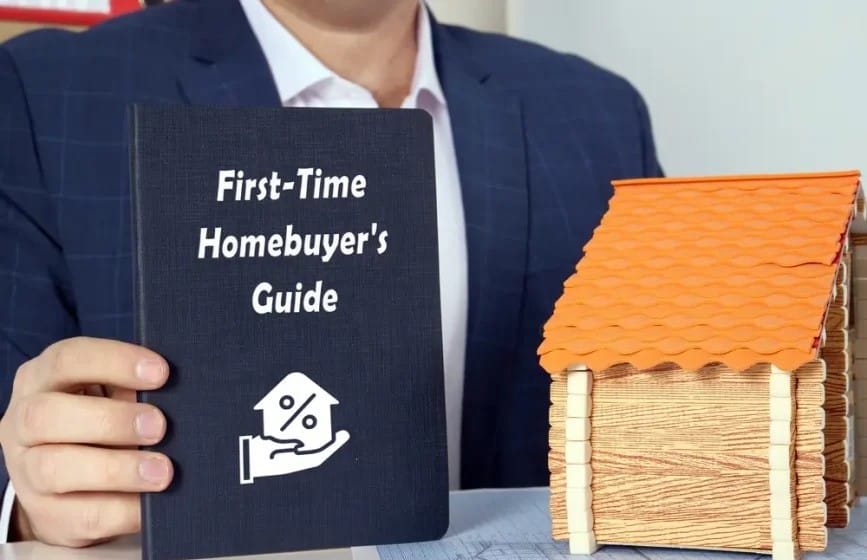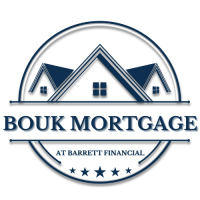It’s time to make the big move and purchase your first home because you’ve decided you’re ready to stop renting. But are you, really?
It helps to be ready before you begin the process because a house might be the largest purchase you make in your lifetime. Before you are tempted by real estate listings with features like a large backyard, granite countertops, or a walk-in pantry, you should organize your finances and strategy.
Here are the 10 first-time homebuyer tips you must follow to purchase your first home.
Best Tips For First Time Home Buyer
Lest start exploring mortgage tips for new buyers with us:Assessing Your Financial Readiness
One-time costs and new, ongoing liabilities should both be taken into account when figuring out how much money you need to buy a home. When saving for a home, keep the following major initial costs in mind:
Down payment
The lender and the kind of mortgage you select will determine how much down payment you need. For first-time homebuyers with good credit, some traditional loans have a down payment as low as 3%. However, saving for even a modest down payment can be difficult. For instance, $9,000 is a 3% down payment on a $300,000 house. To begin, establish automatic transfers from checking to savings after determining a goal with a down payment calculator.
Closing Costs
These costs and fees, which normally vary from 2% to 6% of the loan amount, are what you pay to complete your mortgage. For a $300,000 loan, your closing fees could range from $6,000 to $18,000. You would have to pay that amount in addition to your down payment. You can ask the seller to cover some of your closing costs in a buyer’s market, and you can shop around to save money on things like home inspections.
Move-in costs
Keep in mind that moving expenses can reach $2,500 for the majority of local moves. (Moving long distances can cost a lot more.) After the house purchase, you’ll need some money. Put aside some cash for urgent house furnishings, improvements, and repairs.
Understanding Your Mortgage Options
There are numerous mortgage options with different eligibility requirements and down payments. The primary categories are as follows:
Conventional Loan
The most popular kind of home loan is a conventional mortgage, which the government does not guarantee. As little as 3% down is needed for some conventional loans aimed at first-time homebuyers.
FHA Loan
The Federal Housing Administration insures FHA loans, which have a 3.5% down payment requirement.
USDA Loan
The U.S. Department of Agriculture guarantees USDA loans. They are intended for buyers of homes in rural and suburban areas and typically don’t require a down payment.
VA Loan
The Department of Veterans Affairs guarantees insures VA loans. They typically don’t demand a down payment and are available to veterans and active military personnel.
You also have choices regarding the mortgage term. The majority of homebuyers choose a 30-year fixed-rate mortgage, which has a constant interest rate and is paid off in 30 years. Compared to a 30-year mortgage, a 15-year loan usually has a lower interest rate, but the monthly payments are higher.
Set Your Budget
Another thing to think about is that if you look for homes that are below your price range, you will have some power to go over the asking price if there is a bidding war, which is not uncommon in the current real estate market for beginners.
When creating a budget, consider not only the amount of a home you can afford but also the amount of ongoing expenses you can manage after you’ve bought your house.
The three main monthly costs of homeownership are your mortgage, insurance, and property taxes; you may also have to pay for utilities and even HOA dues. Additionally, setting aside money on a regular basis for maintenance and unexpected repairs is a smart idea.
Working with a Real Estate Agent
You can get advice on market conditions and if the properties you wish to make offers on are priced appropriately from an experienced real estate agent who is particularly familiar with the area you’re trying to purchase in. In addition to pointing out possible problems with a house or area that you aren’t aware of, your agent can advocate on your behalf when negotiating terms and prices.
Ask potential brokers how they plan to assist you in finding a property and about their experience working with first-time homebuyers in your area.
Asking friends, family, or coworkers for recommendations is a good place to start. To determine who would be a good fit in terms of personality and experience, interview several potential agents.
Making a Smart Offer
It’s time to draft an offer once you’ve located the ideal home. Your mortgage pre-approval shows to the sellers that you are serious about the offer and that you are aware of the highest amount you are able to afford.
The specifics of your offer will be discussed with your real estate agent, but generally speaking, it should contain:
- The seller’s name, your legal name, and the property’s legal address
- The cost of purchase
- After your offer is approved, you typically have 24 hours to pay your deposit.
- Anything extra you would like to include in the deal, such as window coverings or appliances
- The date you take ownership of the house, also known as the closing date (typically between 30 and 60 days for resale homes)
- The offer’s expiration date
- Any requirements that must be fulfilled, including a lender authorizing your loan or a positive home inspection
You have the option to accept, reject, or modify the sellers’ counter offer when they present it. In the end, you’ll have to choose what you’ll accept and when to go. Everybody has heard of homes that were sold during a bidding war for tens of thousands of dollars more than they were originally listed for. People who purchased homes much beyond their means have also been reported to be house-poor.
Check Your Credit Score
A three-digit figure that ranges from 300 to 900, your credit score indicates how well you manage your credit and tells lenders how hazardous it would be to give you a loan. A good credit score begins at about 660 and is usually used as the standard for obtaining a mortgage, while lenders have their criteria for assessing risk. However, you might be able to qualify with a credit score of 600 if you have a high-ratio mortgage, which is an insured mortgage with less than a 20% down payment.
When applying for a mortgage, your credit score may be more important than it is for any other kind of personal loan. In addition to influencing your chances of getting preapproved for a mortgage, higher credit scores typically translate into better interest rates.
If you discover that your credit score is low, you can try to improve your credit history by making on-time payments, reducing your credit utilization, or consolidating your debt.
Getting Pre-Approved for a Mortgage
To determine what you can afford, it’s a good idea to get a mortgage pre-approval before you begin your home search. A mortgage pre-approval confirms how much a lender is willing to offer you based on your credit score, assets, debt level, income, and down payment. A pre-qualification, which is self-reported and not confirmed by your lender, is not the same as a pre-approval. Your lender will review your submitted documentation and run a strict credit check as part of the preapproval process. An approval does not, however, ensure that you will be provided a mortgage.
Information including the mortgage duration, interest rate, and principal amount is provided in a mortgage pre approval. Usually, a lender will give a rate of 60, 90, or 120 days. As long as you fulfill all other loan requirements, your lender should honor the kept rate if interest rates increase during that time.
You can choose your mortgage’s duration (usually three, five, or ten years), amortization period, and whether to have a variable-rate or fixed-rate mortgage during the preapproval step.
Home Inspection Importance
A home inspection is a comprehensive evaluation of the mechanical and structural systems. To help you decide whether to purchase the home, professional inspectors search for possible issues. The following points should be remembered:
- Tests for radon, mold, and pests are not part of routine inspections. Ask your realtor what additional inspections you might require and be aware of what is covered by the inspection.
- Verify that the inspectors have access to all areas of the house, including the crawl spaces and the roof.
- Although it’s not required, the buyer might find it helpful to be present at the inspection. You can ask questions right away and have a better idea of the house by accompanying the inspectors around. Check the reports thoroughly and inquire about any unclear information if you are unable to attend the inspections.
Closing Costs and Hidden Fees
It’s simple to concentrate on the down payment when purchasing your first home and ignore other expenses that might mount up rapidly. Closing costs might include things like loan origination fees, title searches, and legal services, and they usually vary between 2% and 5% of the purchase price of the property. To prevent last-minute surprises, you must include these expenses in your budget.
Property taxes, which vary by area and can be due annually or semi-annually, are another price to take into account. Other financial institutions could demand that these be paid for in advance and added to your closing expenses. Most mortgages also need homeowners insurance, which covers any losses or damages. You might also want additional coverage, including earthquake or flood insurance, depending on your location.
Moving and Settling In
Closing day is here, and the waiting is done. You officially move into your new house on this day.
Closing the deal is typically a simple home buying process after all the effort to get here:
- Your lawyer or notary receives the mortgage funds from your lender in trust.
- You pay your lawyer or notary the closing charges and your down payment (less the deposit).
- The home is registered in your name and the sellers are paid by your lawyer or notary.
- You get the keys to your new house from your lawyer.
On the day of closing, you will finish the financial and legal documents required to finalize the transfer of the home’s title to you and your funds to the seller. Unless you (or your agent) have bargained for the seller to pay all or part of these charges, you should budget between 2% and 6% of the home’s purchase price for closing costs.
To facilitate a faster closing procedure, it’s critical to ensure that your financial situation doesn’t change during this time. Make sure you thoroughly study any paperwork you are given as you proceed and ask your lawyer or real estate agent to clarify anything you don’t understand.
Conclusion
After reading this home buying guide, you have an idea that purchasing a home for the first time can seem difficult and never-ending. However, you may stay focused and finish the task by breaking the procedure down into phases and addressing each one separately. Working with a reputable real estate agent and conducting your homework beforehand will help you stay on course during the entire process. You can also get your first house and qualify for a loan by maintaining stable finances and avoiding other large purchases.
FAQ’s
As a first-time buyer, how can I get a low mortgage payment?
Your monthly mortgage payments will go down if you increase your down payment. By extending your mortgage over more years, you can also reduce your monthly payments, but this is never a good idea as it results in higher interest costs and longer debt repayment periods
How can I tell if I’m a first-time buyer?
Therefore, you are a first-time buyer if you have never owned a property. You are not considered a first-time home buyer if you have previously owned a home but sold it.
What is the required down payment percentage of the purchase price?
You should put down 5–10% of your total cost as a first-time home buyer. A 20% down payment, however, is preferable since it will prevent you from having to pay additional costs for private mortgage insurance (PMI).









